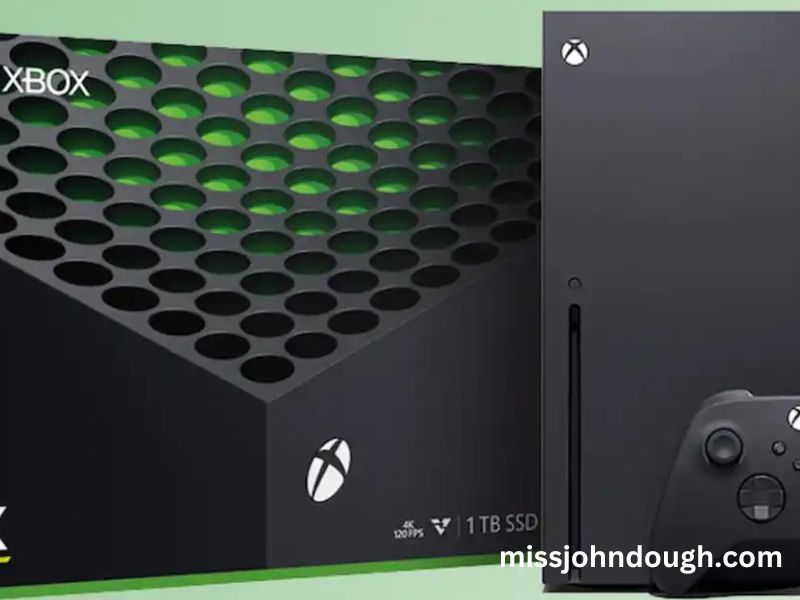The rumors of Xbox going out of business have been circulating, causing concern among fans of the gaming console. However, a closer look at the situation reveals that these claims are far from reality. Xbox, as part of Microsoft’s vast portfolio, remains a significant player in the gaming industry, with a few strategic shifts aimed at adapting to the changing gaming landscape.
The Growing Concerns
Recently, there have been whispers in the gaming community about the future of Xbox, with some even speculating that the iconic gaming console brand might be facing a closure. These concerns stem from several factors, including shifting business strategies, the growing success of rival platforms, and questions surrounding Xbox’s long-term sustainability.
The most prominent cause for concern came from Microsoft’s announcement of integrating Xbox games into other platforms. For instance, games like Starfield and Indiana Jones are rumored to be coming to PlayStation, which might suggest a strategy move away from exclusive gaming consoles. These shifts raised doubts about Xbox’s future direction
Phil Spencer’s Reassurance
Phil Spencer, the head of Xbox, has openly addressed these concerns, reassuring employees and the gaming community that Xbox is not going anywhere. During an internal town hall meeting, Spencer confirmed that the company would continue to focus on developing consoles alongside exploring new ways to deliver gaming experiences across multiple devices. This approach is designed to meet the evolving demands of gamers, with cloud gaming, mobile platforms, and Xbox Game Pass being central to this strategy
Spencer emphasized that while Xbox is diversifying its approach by offering games on different platforms, it does not signal the end of the gaming console line. Instead, it marks a new era for Xbox where cross-platform gaming and an expansive Game Pass ecosystem will help the brand thrive. In essence, Xbox consoles will still be crucial to the company’s gaming strategy.
The Role of Xbox Game Pass
Another significant aspect of Xbox’s future is the Xbox Game Pass service. Game Pass, which allows gamers to access a vast library of games for a monthly subscription, has become a cornerstone of Microsoft’s gaming strategy. Despite some recent slowdowns in subscriber growth, Game Pass remains a critical element of Xbox’s gaming ecosystem. Microsoft’s goal of reaching 100 million subscribers by 2030 demonstrates the company’s commitment to expanding this service
However, the pressure to meet these ambitious goals has prompted Microsoft to re-evaluate its approach. The company is exploring new avenues to attract subscribers, including expanding Xbox games to platforms like PlayStation and Nintendo Switch. This strategy is designed to reach a broader audience, even if it means sharing popular Xbox titles with competing consoles
Acquisition of Activision Blizzard
A significant move that bolsters Xbox’s position is Microsoft’s acquisition of Activision Blizzard. This $68.7 billion deal not only adds iconic titles like Call of Duty, Candy Crush, and Diablo to the Xbox portfolio but also enhances Xbox’s capabilities in mobile gaming. Activision Blizzard’s mobile games are expected to contribute significantly to Xbox’s revenue, particularly as Microsoft ventures into launching its own mobile gaming store
The Activision deal also strengthens Microsoft’s position in the ongoing battle with other gaming giants. With access to popular franchises across various platforms, including mobile, Xbox’s future appears secure, despite the growing competition.
The Xbox Hardware Strategy
While the focus has shifted towards services like Game Pass and mobile gaming, hardware is still essential to Xbox’s identity. The Xbox Series X and Series S consoles remain strong contenders in the gaming market. Xbox is positioning the Series S as an affordable alternative to high-end consoles, targeting budget-conscious gamers who may not be able to invest in the Series X.
Moreover, Microsoft is still committed to producing innovative gaming hardware. Leaked documents and insider reports indicate that Xbox will continue to release consoles, even if they’re not the sole focus of its strategy. The emphasis on multiple devices, including PCs, smartphones, and cloud gaming, shows that Xbox is adapting to the digital age
The Future of Xbox
Despite the challenges faced by Xbox, including slower growth in Game Pass subscriptions and fierce competition from Sony’s PlayStation and the Nintendo Switch, the brand is far from being on the brink of closing its doors. Xbox’s evolving strategy to incorporate games into other platforms, the success of Xbox Game Pass, and the lucrative acquisition of Activision Blizzard all point towards a future where Xbox adapts to the changing demands of gamers.
Rather than phasing out consoles, Microsoft seems to be focusing on building a robust, multi-platform gaming ecosystem. The move towards cloud gaming and mobile platforms, combined with a strong console presence, suggests that Xbox will continue to thrive in the competitive gaming landscape.
Conclusion
In conclusion, Xbox is not going out of business. While there have been shifts in the strategy, particularly in terms of cross-platform gaming and expanding Xbox Game Pass, these moves are designed to keep Xbox relevant in the ever-changing gaming market. With continued investments in gaming hardware, cloud services, and the mobile sector, Xbox is poised for long-term success. As Microsoft evolves, Xbox will remain an integral part of its gaming ecosystem, offering gamers access to a wide range of experiences across various platforms.


